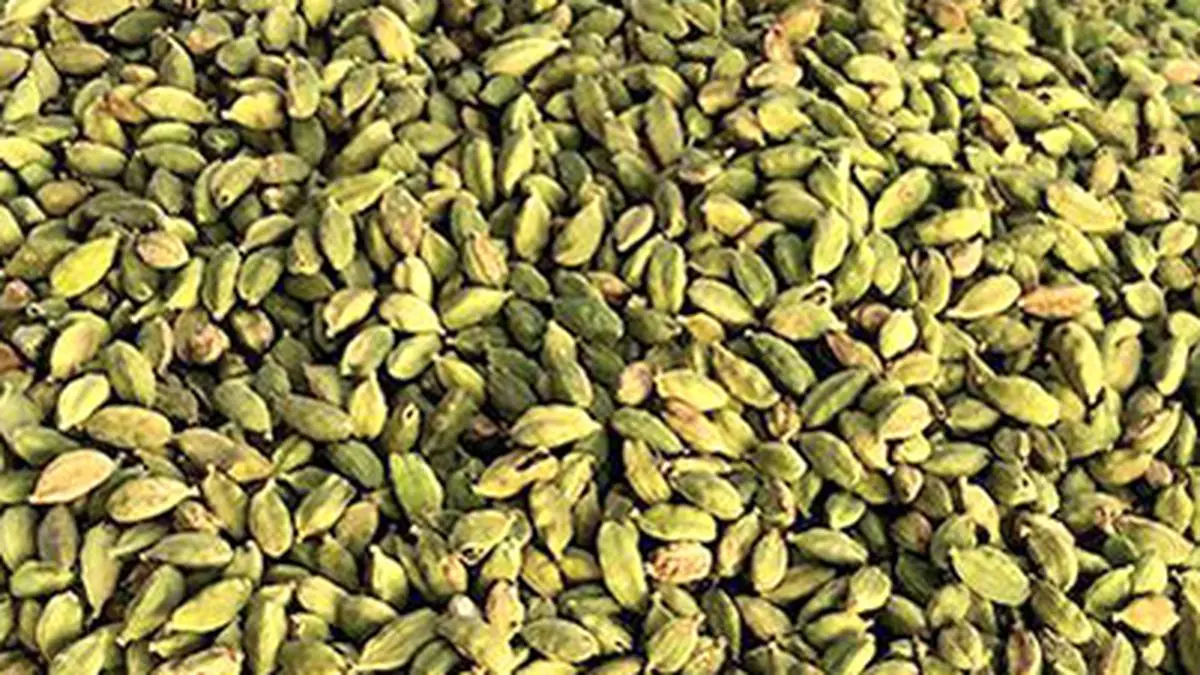As production drops in Guatemala, Indian cardamom may gain on Ramadan demand
Indian cardamom exporters are pinning their hopes on shipping more quantities to the Gulf markets ahead of Ramadan by February 2025, thanks to a reported drop in production in Guatemala.
Quoting reports exporters said the Guatemala 2024-25 harvest was projected to drop by 44 per cent from last year. Crop damage from thrips alone was estimated at 34 per cent. Total production in Guatemala was down to 18,884 tonnes. With other factors to take into account, it might be even lower by around 1,000 tonnes.
S.B. Prabhakar, a planter in Idukki, said cardamom production in Guatemala is projected to be around 17,000 to 20,000 tonnes, 40-50 per cent lower than last season. The first round picking in Guatemala has been completed, with a poor litter weight of 340 gm as growers are harvesting early to cash in on higher prices. This will help India export more cardamom ahead of the Ramadan festival by February 2025.
Prices higher
However, he said the Indian crop is also down 50 per cent this season. As old crop arrivals should be exhausted this month, prices are bound to increase. Guatemala cardamom prices are trading about 30 per cent higher than Indian cardamom. This will allow Indian produce to be exported in good quantities in the next four to five months. “We can expect Indian cardamom prices to reach ₹3,500 per kg during January to March of 2025,” he said.
SKM Dhanavanthan, a cardamom exporter in Bodinayakanur, said Ramadan sales have yet to pick up, and given the tight crop situation in both India and Guatemala, meeting demand in terms of price and quantity will be challenging. While the current high prices suit regular retail sales and might cover domestic needs in the coming months, excessive price hikes could disrupt the industry, severely limiting export volume, he said.
However, he warned that Middle East buyers — a traditional market for Indian cardamom – were becoming increasingly cautious of the current inflated prices in the domestic market.
Speculation driving market?
He said speculation and the recent addition of private auctions without any regulatory control were behind the sudden price surge. This deters foreign buyers as they face risk in re-selling at profitable levels.
The price surge has opened the Indian market to cheaper imports, especially from Guatemala, which is now sold at lower prices, further undercutting Indian cardamom domestically. If left unchecked, Indian cardamom could lose its competitive edge, both locally and internationally, he said.
P.C. Punnoose, General Manager of KCPMC, one of the auctioneers, said they had received overseas enquiries after Diwali and the stabilisation of prices above the ₹2,500+ level was a positive sign. However, snail infestation in plantations was a recent threat that was affecting new panicles and flowers of cardamom plants, leading to crop damage, he said.
